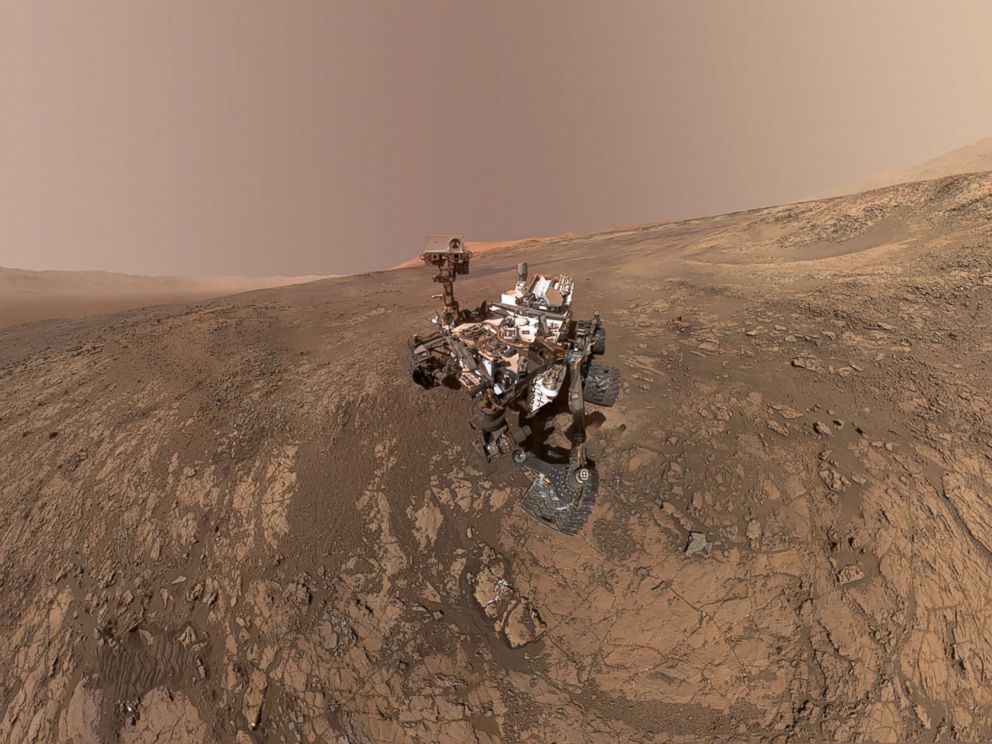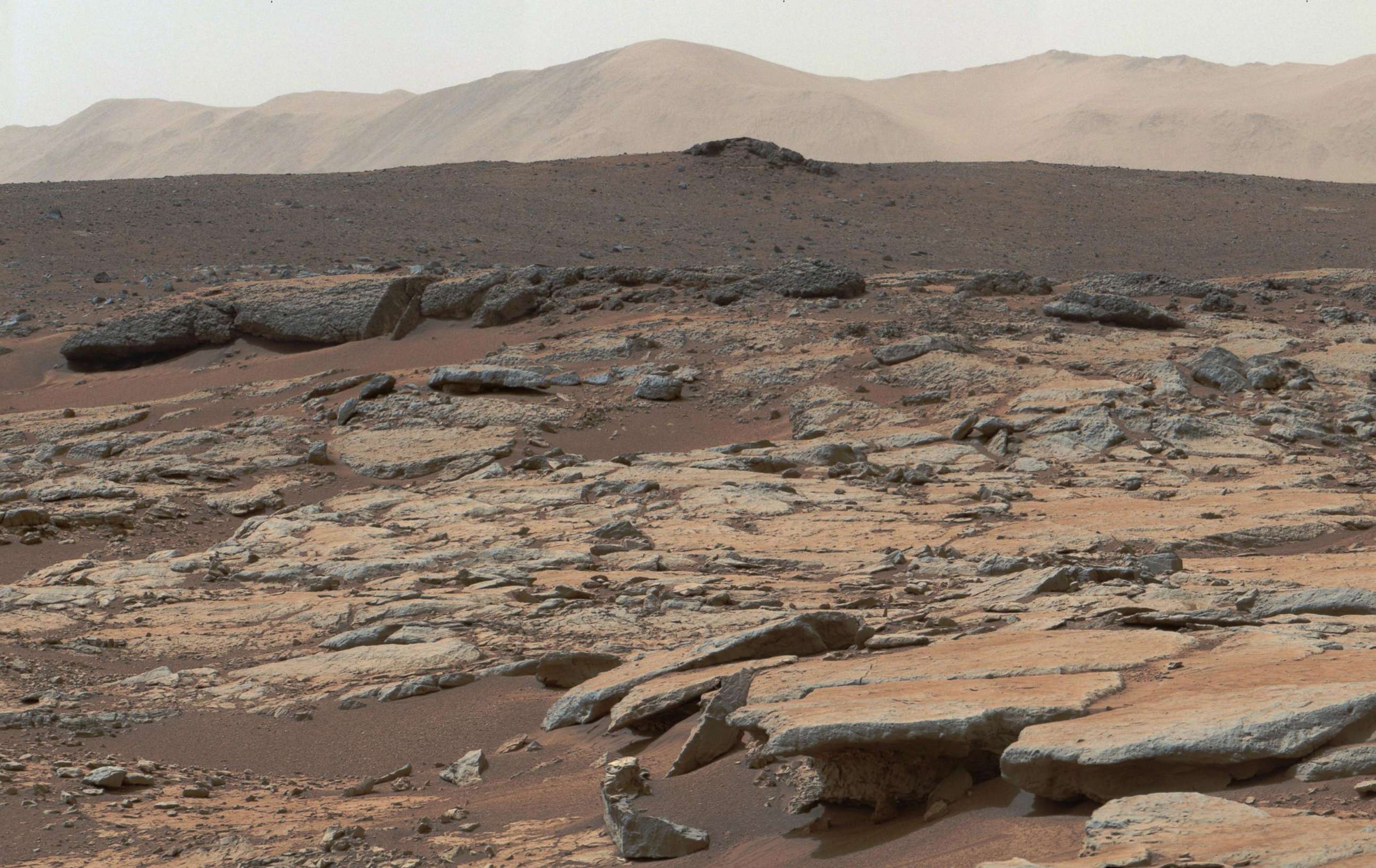Water found on Mars: Everything you wanted to know but were afraid to ask
We spoke to NASA scientists to understand what the big deal is.
You and I may think water is boring, but to scientists looking for life on Mars, it’s the Holy Grail.
And so this week, when Italian researchers announced they had found evidence that a lake full of water exists on Mars, a ripple, a wave -- a flood of excitement swept over scientists across the world.
To understand what the big deal is, ABC News spoke to Michel Meyer, the lead scientist for NASA's Mars Exploration Program, and Richard Zurek, chief scientist for the Mars Program Office at NASA's Jet Propulsion Laboratory. Here's what they told us.
So what's all the hullabaloo about?
It's about life on Mars -- or at least the possibility of it.

For decades, scientists have been hunting for any sign of water on the planet. NASA’s Mars program even has a slogan -- "Follow the Water." That's because it's the only way to tell if life could exist.
"It's one of the universal ingredients that is required for life on Earth," said Meyer. "And when we find one of the few places on this planet where there isn't water, we don't find life."
Which is why finding evidence of it on Mars opens up a world of possibilities.
"It tells us at least we're on the right track for finding life," Meyer said.
Wait a minute, didn't I read somewhere that we found water on Mars already?
Nope, what you've read is evidence that water did exist there and could exist there.
There were the dark streaks that may or may not have been left by flowing water. There was the crater that had a large freshwater lake 3.5 billion years ago. And there was the thick layer of ice discovered underground with enough volume to fill Lake Superior.

But this time, scientists may have found the existence of liquid water not in the past, not in some theory, but now.
So what kind of lake is it? Another Lake Superior?
Sort of. If Lake Superior was salty, spanned 12 miles in width and was buried below ice about a mile thick.
But didn’t I learn in sixth-grade physics that it’s too cold on Mars for water to stay liquid?
Yes, indeed, said Zurek, the temperature at Mars can drop to over 240 degrees Fahrenheit below zero, far, far below the freezing point of water —- in its pure state.
But scientists believe the lake water could have salts dissolved in it.
“If you put salts into water, then you can depress the freezing point,” said Zurek.
“And if it's a particular kind of salt called perchlorate, you can depress it by some 50 to 60 degrees. And we know those salts do exist at the surface of Mars.”
If it’s buried beneath a mile of ice, how did they even find it?
Fun fact: Water reflects radar signals much more strongly than do rocks and sediments.

A few years ago, when the Italian scientists were analyzing radar signals collected over three years by the European Space Agency’s Mars Express spacecraft using its radar sounder, MARSIS, something caught their eye -- bright reflections in the radar signals that seemed to have been made by water.
They spent at least two years examining the data to make sure they’d found water -- not ice or another substance. But there came a point when they had to conclude water was the best explanation.
Is this definitive proof?
Not at all, says Zurek.
Many things about that hypothesis still puzzle scientists - why the bright spots are not more widespread, for example.
That is why, more research needs to be done to verify these findings, Meyer said. And scientists, including those at NASA, are raring to go.
"The bright spot seen in the MARSIS data is an unusual feature and extremely intriguing," Jim Green, NASA's chief scientist, said in a statement on Wednesday. "We hope to use other instruments to study it further in the future.”
In May, NASA launched another spacecraft, the InSight Mars lander, that will dig under the surface after it reaches a flat plain just north of the Martian equator in November.
The Associated Press contributed to this report.




